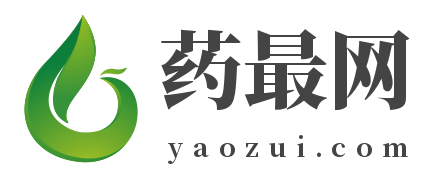ASCO 2016 乳腺癌免疫治疗真的要来了!OPT-822/OPT-821 II/III期临床试验-走在乳腺癌免疫治疗前端!
台湾OBI Pharma公司治疗乳腺癌的糖分子疫苗OPT-822/OPT-821药物的II/III期临床结果将在2016 ASCO做口头汇报,特附上摘要全文:

方法:
本研究是一项国际多中心,随机双盲,安慰剂对照的II/III期临床试验,经历了≤2次疾病进展并且至少在之前的治疗当中获得一次SD疗效的转移性乳腺癌患者2:1随机分组到接受皮下注射OPT 822(30ug的Globo H疫苗)以及OPT-821(100ug), 或者安慰剂(两组都同时接受低剂量的环磷酰胺,300 mg/m2)。注射分别在第1,2,3,5,9,13,17,25,37周共9次注射或到进展时结束。允许接受内分泌治疗。主要研究终点为PFS,次要研究终点为OS,以及与体液免疫反应的关联。
结果:
一共随机了349例患者,其中348例患者接受了治疗(ITT),168名患者(48%)接受了全部9次注射。其中70%为激素受体阳性患者,13%为三阴性乳腺癌患者,62%的患者接受了内分泌治疗。两组间的PFS(HR, 0.96 [95% CI, 0.74-1.25] P = .77)和中期的OS (HR, 0.79 [95% CI, 0.51-1.22] P = .29)都没有差异。但是,被Globo H激发的特异性IgG的共50%的人群当中,PFS和OS得到了显著的延长(HR,0.71 [95% CI, 0.52-0.97] P = .029 for PFS; HR, 0.57 [95% CI, 0.33-0.97] P = .04for OS)。 OPT-822/OPT-821耐受性良好,最常见的不良反应为1、2度的注射反应。
结论:
Conclusion: OPT-822/OPT-821 疫苗并没有在ITT人群中延长PFS,但在被疫苗激发免疫反应的患者中显著延长了PFS和OS。这个亚组分析的结果会被用来设计决定性的III期临床研究。

Abstract 1003:
Background: Globo H is a glycolipid that ishighly expressed in breast cancer (BC). Active immunotherapy with OPT-822, a GloboH–KLH conjugate, and the adjuvant OPT-821 in 2 phase (Ph) I trials, inducedGlobo H specific antibodies which could mediate in vitro binding andcytotoxicity to Globo H expressing BC cells.
Methods: In this international,randomized, double-blind, placebo-controlled Ph II/III trial (NCT01516307),patients (pts) with metastatic BC who had ≤ 2 events of progressive disease(PD) and who achieved at least stable disease (SD) after ≥ 1 anticancer regimenwere randomized 2:1 to receive subcutaneous OPT-822 (30 μg Globo H)/OPT-821(100 μg) or control (PBS) on weeks 1, 2, 3, 5, 9, 13, 17, 25, and 37 or untilPD, in combination with low-dose cyclophosphamide (300 mg/m2).Hormone therapy was allowed. The primary and secondary efficacy end points wereprogression-free survival (PFS) and overall survival (OS), correlated withhumoral antibody response.
Results: 349 pts were randomized, 348received study drug (ITT), 168 (48%) received all 9 injections. 70% had hormonereceptor positive BC, 13% were triple negative, and 62% received hormonetherapy. No difference was observed in PFS (HR, 0.96 [95% CI, 0.74-1.25] P= .77) or in interim OS (HR, 0.79 [95% CI, 0.51-1.22] P = .29). However,PFS and OS were significantly improved in the 50% of pts who developed a GloboH specific IgG response to OPT-822/OPT-821 with a titer ≥ 1:160 at any timeduring treatment vs control (HR, 0.71 [95% CI, 0.52-0.97] P = .029 forPFS; HR, 0.57 [95% CI, 0.33-0.97] P = .04 for OS) and vs nonresponders(HR, 0.52 [95% CI, 0.37-0.71] P< .0001 for PFS; HR, 0.52 [95% CI,0.29-0.92] P = .025 for OS), adjusted for baseline diseasestatus/hormone use. In a time-dependent Cox model, PFS was improved in pts whoreceived all 9 injections of OPT vs control (HR, 0.66 [95% CI, 0.42-1.01] P=.057). OPT-822/OPT-821 was well tolerated; the most common drug-related adverseevent was grade 1/2 injection reaction.
Conclusion: Vaccination with OPT-822/OPT-821did not improve PFS in the ITT; however, PFS and interim OS were significantlyimproved in pts who developed an immune response to the vaccine. These subgroupdata will be used to design a definitive Ph III trial
睿积医药资讯(Rigi-medical)带您了解更多行业最新资讯,成为您身边的智库。如有合作需求,欢迎留言。

